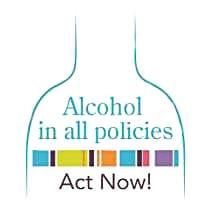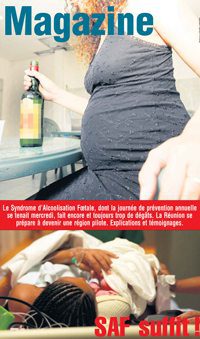Call for a Comprehensive Alcohol Policy Strategy in the European Union 2016-2025
 The European Union has the highest rate of alcohol consumption in the world (10.2 litres of pure alcohol per person) and alcohol was responsible for 1 in 7 male deaths and 1 in 13 female deaths in the group aged 15–64 years, resulting in approximately 120 000 premature deaths1
The European Union has the highest rate of alcohol consumption in the world (10.2 litres of pure alcohol per person) and alcohol was responsible for 1 in 7 male deaths and 1 in 13 female deaths in the group aged 15–64 years, resulting in approximately 120 000 premature deaths1
Alcohol is the 3rd main contributory factor to Non Communicable Diseases (NCDs), it is a cause of some 60 different types of disease, including many cancers, liver disease, cardiovascular diseases, gastrointestinal conditions, immunological disorders, lung diseases, skeletal and muscular diseases, reproductive disorders and pre-natal harm, including increased risks of prematurity and low birth as well as developmental disorders. There is a clear causal link between alcohol and cancer- 10% cancers in men and 3% of total cancers in women are directly attributable to alcohol.2 Alarmingly, 43% of male and 38% of female young European students (15-16 year old) report heavy episodic drinking at least once a month3 Beyond its health consequences, the harmful use of alcohol inflicts significant social and economic losses on individuals, families, communities and society at large.
In total, the societal costs of alcohol in the EU for 2010 were an estimated €155.8 billion.4 Alcohol is the world’s number one risk factor for ill health and premature death among 25- 59 year olds, the core of the working age population. 5 Harmful alcohol use negatively affects work performance, drains healthcare systems and is a contributory factor in crime, accidents and injuries.
The harms form alcohol are therefore multidimensional and require a range of policies to contribute towards maintaining a healthy work force and reducing costs for health care services, in line with the strategic aims of the Europe 2020 Strategy.
We recognise the progress that has been achieved over the past years in raising the issue of alcohol related harm on the EU agenda, from the first mention in 1986 of a need to tackle the problems related to harmful and hazardous consumption of alcohol in the Council Resolution, through 2006.
EU Alcohol Strategy, to the adoption of the 2014 Action Plan on Youth Drinking and Heavy Episodic Drinking.
Despite the progress achieved our work to tackle alcohol related harm is by no means finished. The absence of an up-to-date EU Alcohol Strategy based on latest evidence and abreast with societal changes (for example, move of alcohol advertising from traditional to new media) poses a real threat to maintaining and boosting the progress made to reduce alcohol related harm in Europe. An EU Alcohol Strategy should lay out a longer term framework for sustainable action at the EU level and seek to support and complement comprehensive national alcohol strategies by focusing on policy areas where the EU mandate can add value.
Population-level policy instruments, such as taxation and action on physical availability
Targeted policies such as minimum unit pricing, which has a greater impact on hazardous and harmful drinkers and contributes to reducing health inequalities.
Effective restrictions on alcohol marketing and advertising
Consumer information including the provision of nutritional and other health related information on alcoholic beverage labels
Reduction in drink-driving
Health sector responses for early detection, brief interventions and treatment for alcohol use disorders
Strategies that alter drinking contexts, backed up by community-based prevention action
Evidence-based public awareness communication and school-based education to help reduce risks and harm from alcohol
Prevention with special focus on the workplace
Research, better monitoring of trends in alcohol consumption and harms and further development of the common evidence base
Due to the scale of the problem and its impact across societies, alcohol related harm is a too big challenge for one government to solve alone. It requires a comprehensive, coordinated response from policy and decisions makers at both European and national levels.
With this in mind, we the signatories call on the European Commission to take the lead in reducing alcohol related harm and develop an up-to- date EU Alcohol Strategy that can deliver real gains for public health.
1 World Health Organisation (2013) Status report on alcohol and health in 35 European countries
2 British Medical Journal (2011) Alcohol attributable burden of incidence of cancer in eighth European countries based on results from prospective cohort study
3 ESPAD 2011 Report. Substance Use Among Students in 36 European Countries.
4 Rehm, J. et all (2012) Interventions for alcohol dependence in Europe: A missed opportunity to improve public health
5 Scientific Opinion of the Science Group of the European Alcohol and Health Forum (2011) Alcohol, Work and Productivity



